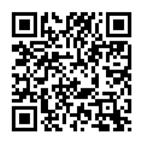IN THIS ISSUE
Cultivating Mindfulness and Enhancing Well-Being

Intuitive Eating
Fall Well-Being Calendar
Wellness Heroes
PHA winners

Cultivating Mindfulness and Enhancing Well-Being

Intuitive Eating
Fall Well-Being Calendar
Wellness Heroes
PHA winners
UI Wellness is a unit of UI Human Resources.
Erin Litton Senior Director, Well-Being erin-litton@uiowa.edu
353-2974 • 121 USB
Melanie Cuchna Manager, liveWELL melanie-cuchna@uiowa.edu
467-4618 • E119 CRWC
Diana Kremzar Director, UI Family Services diana-kremzar@uiowa.edu
335-3558 • 121 USB
Sara Cathi
Senior Well-Being Specialist and Health Coach, liveWELL sara-cathi@uiowa.edu

467-3239 • E119 CRWC
Kelli Jackson Amato Well-Being Specialist, liveWELL kelli-jacksonamato@uiowa.edu
467-4917 • E119 CRWC
Erica Blaha Health Coach, liveWELL erica-blaha@uiowa.edu
467-1238 • E119 CRWC
Jean O’Donovan Secretary, liveWELL jean-odonovan@uiowa.edu
353-2973 • E119 CRWC
Mary Heath Secretary, liveWELL mary-heath@uiowa.edu
353-2973 • E119 CRWC
With much excitement and enthusiasm, I am returning to HR/ UI Wellness as the Senior Director of Well-Being Services and leader in campus well-being! I have been on campus professionally since 2006 and engaged in well-being in many ways. During my time at the University of Iowa, I have had the privilege of working in Recreational Services, the liveWELL program, and Health and Human Physiology.
At UI Wellness, our strategic goal is to build wellness into our work and lives rather than have it as an add-on. Being busy with my own professional and personal life, I know that well-being is best when it is done within our current expectations.
One tool we all can use to embed wellness into our daily lives is mindfulness. By paying attention to what we are doing and what we can control, we are able to better serve our mental and physical health. This newsletter has great insights on ways to practice mindfulness. I love how Brad Baldwin from Aperture (page 4) breaks mindfulness into four parts: paying attention, to the present moment, on purpose, without judgment. Being intentional with our thoughts and actions allows us to fully engage with where we are. Amazing things are happening all around us – take a moment to be with them. Additionally, this newsletter builds on mindfulness to explore intuitive eating with Haley Melchert (page 8). I love this article because it allows me to respond to my body and identify what it needs in any given moment and more importantly gives me guidance on implementing healthy eating wherever I am – the office or the ballpark!
This newsletter concludes with an amazing calendar full of opportunities to engage in well-being on campus.
Whatever you do to honor your wellness, please know that the liveWELL team is here to support your success.
Erin Litton MA, MCHES, NBHWC Senior Director of Well-Being Services UI Wellness/University Human ResourcesliveWELL inspires a culture of well-being and campus excellence, providing employees with the opportunity to thrive.
FALL WELL-BEING CALENDAR

CULTIVATING MINDFULNESS AND ENHANCING WELL-BEING INTUITIVE EATING PHA WINNERS


14 WELLNESS HEROES
University Human Resources provides leadership in shaping an equitable and inclusive culture that drives diversity, excellence, and innovation by supporting talent, engagement, and the employee work experience.
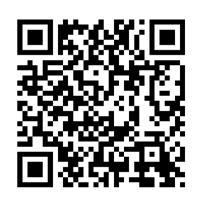
Brad Baldwin is the CEO of Aperture, an organization that infuses the practice of mindfulness within executive leadership coaching and organizational assessment, and he also is an instructor for the evidence based eight-week Mindfulness-Based Stress Reduction (MBSR) program. Brad has over two decades of experience in leadership development and human resources. He currently partners with the liveWELL Program to deliver the eight-week MBSR program to UI faculty and staff.

liveWELL:
In today’s fast-paced and demanding world, practicing mindfulness has become increasingly important for managing stress, improving focus, and enhancing overall well-being. Embracing mindfulness can contribute to personal growth and well-being as well as a positive work environment and greater productivity. This article explores the concept of mindfulness, its benefits, and provides practical tips and best practices to incorporate mindfulness into daily life.
Brad, there is a lot of evidence available on the practice of mindfulness. Can you describe what mindfulness is and what it is not?
Brad Baldwin :
There are so many misconceptions about what mindfulness truly is, so I find it helpful to stay grounded in a simple definition of mindfulness. The definition has four parts, mindfulness is:

• Paying attention
• To the present moment
• On purpose
• Without judgment
It involves paying attention to your thoughts, emotions, bodily sensations, and the surrounding environment and approaching these with curiosity, kindness, and acceptance.
Mindfulness is not about clearing the mind or always feeling calm. It is about creating awareness of yourself, so you can act from a place of clarity. Mindfulness allows you to accept and move through challenging emotions and savor and enjoy life’s positive moments.
For more on what mindfulness is and what mindfulness is not, watch the short video on liveWELL’s Health and Well-Being Video Resource page.
Brad Baldwin :
Mindfulness can be a transformative skill for well-being. Some notable benefits of mindfulness include reduced stress, improved focus, enhanced emotional well-being, and greater skills for resilience.
A daily mindfulness practice helps reduce stress and anxiety in part by increasing awareness of emotions. When we are more aware of our emotions, we are better equipped to respond to the stressful situations in our lives. Additionally, greater self-awareness can help improve personal relationships by fostering empathy and compassion and improving communication. Positive relationships support emotional well-being.
Mindfulness practices and techniques, such as deep breathing or meditation, encourage us to minimize distractions and pause, which improves mental focus and clarity, concentration, and attention span.
Finally, I’ll add that a committed practice results for many in greater resilience in dealing with difficult situations. It enhances the ability to adapt to challenges, bounce back from setbacks, and keep moving forward..
Mindfulness-Based Stress Reduction (MBSR) is an evidence-based program with years of research to support its benefits. Why is MBSR so impactful?
Brad Baldwin :
The eight-week Mindfulness-Based Stress Reduction (MBSR) program is widely recognized for its impact for many reasons.
MBSR is in many ways the gold standard for mindfulness-based interventions (MBIs). MBSR brings together decades of research and understanding about sources of stress, anxiety, and interventions through the practice of mindfulness. MBSR is experienced in a group setting, which creates additional experiential learning opportunities for participants and fosters a sense of community and shared experience.
MBSR includes a wide range of mindfulness practices and tools to manage stress and cope with challenging situations These include formal meditation exercises, body scans, and mindful movement, allowing participants to develop a well-rounded understanding of mindfulness.
MBSR is offered in a secular format, making the content approachable regardless of background and experience with mindfulness meditation practice. The fusion of scientific research, contemplative wisdom from Eastern spiritual practices, and experiential group learning techniques create a meaningful learning opportunity and outcomes that are supported by decades of research and study.
liveWELL:
For beginners, what do you recommend for employees to start incorporating mindfulness into their life?
Brad Baldwin :
The wonderful characteristic of a mindfulness practice is that it can meet you where you are in your life today and each day. So I encourage someone who may be trying mindfulness meditation for the first time to just try it in whatever way makes sense for them. There are incredible resources, both through live WELL and online, that can provide everything from guided meditations to ideas on how to habituate a practice.
With so many resources available, it’s most important to begin somewhere.
• Start with small steps. Begin with short mindfulness exercises, such as taking a few deep breaths or practicing a five-minute guided meditation.
• Create mindful moments. Throughout the day, take brief breaks to tune into your senses and observe your surroundings. Fully engage in simple activities like savoring a cup of tea or going for a short walk, paying attention to the present moment.
• Practice mindful breathing. Whenever you feel stressed or overwhelmed, take a few moments to focus on your breath. Inhale deeply, feeling the air entering your body, and exhale slowly, letting go of any tension or worries.
• Practice being fully present. During meetings or conversations, practice active listening and give your full attention to the speaker. Avoid multi-tasking and be present in the interaction, fostering better understanding and collaboration.
liveWELL:
What resources do you recommend for employees to learn more about mindfulness and experiment with a daily practice?
Brad Baldwin :
I always recommend people begin with live WELL trainings and resources. These resources are at no cost and can be a great way to explore practices. There are many resources that can be found online. A simple google search will yield an incredible number of resources.
Explore mindfulness apps and resources such as Headspace, Calm, or Insight Timer that offer guided meditations, breathing exercises, and other mindfulness practices. These tools can be valuable companions on your mindfulness journey.
Finally, I recommend speaking with someone who has a daily practice or a teacher who guides others. Practice is enhanced through group experience and participation, so any opportunity to engage in a group setting is a tremendous support.
Remember, mindfulness is a skill that develops with practice, so start small and gradually incorporate it into different aspects of your work and life.
The eight-week Mindfulness-Based Stress Reduction (MBSR) program meets on Tuesdays this fall starting September 19, 2023. The program is available to University of Iowa faculty and staff in a 50% or greater, regular position. Individuals must meet with a liveWELL Health Coach or UI EAP Counselor to obtain a referral to MBSR. Scan the QR code to learn more information about MBSR and how to request an appointment.
Experience a Taste of Mindfulness with Brad Baldwin from Aperture this fall. Dive deeper into the practice of mindfulness and experience a guided meditation during this upcoming liveWELL training. Scan the QR code to register at the liveWELL Trainings website. Each session is from 12:10 p.m. - 12:50 p.m. on Zoom
• Tuesday, September 21
• Wednesday, October 25
• Wednesday, November 15
Take a mindful moment to check in with yourself. If you are going through a difficult situation, the UI Employee Assistance Program (UI EAP) is here to help. There is no issue too small or too large to meet with UI EAP. Scan the QR code to learn more about UI EAP Services. Contact UI EAP at eaphelp@uiowa.edu or 319-335-2085 to schedule an appointment.

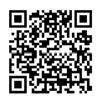
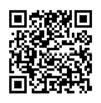
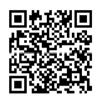
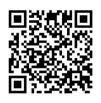
A health coach is a free, non-judgmental, confidential partner who can help you make simple and sustainable changes, overcome obstacles, and explore strategies to maintain a healthy lifestyle. Learn more about the liveWELL Health Coach Service and request an appointment by scanning the QR code.
Find additional mindfulness resources at the liveWELL website. hr.uiowa.edu/livewell/mindfulness
liveWELL:

Haley Melchert is a Behavioral Health Consultant and Fitness Specialist for Student Wellness. She is also a Certified Intuitive Eating Counselor. Haley meets with students at the Campus Recreation and Wellness Center (CRWC) for one-on-one fitness and nutrition consultations and wellness coaching.
Haley, there is a lot of information that has come out in the nutrition world on the practice of intuitive eating. There are also some misconceptions. Can you share more about what this practice entails and the potential benefits?
Haley Melchert :
Absolutely! Intuitive Eating is an evidenced-based, mind-body health approach, comprised of 10 Principles that work by either cultivating or removing obstacles to body awareness. While some of the concepts have been around since the 1970s, the term “Intuitive Eating” was coined in 1995 by two dietitians, Evelyn Tribole and Elyse Resch, in response to growing research that showed dieting was ineffective and not suitable for long-term health.
Essentially, intuitive eating is a personal process of honoring health by listening and responding to the direct messages of the body to meet your physical and psychological needs. It’s about learning to trust your body and its signals and responding to those signals appropriately, most of the time.
Personally, I believe most people can benefit from adopting many of the concepts of intuitive eating, like eating consistently throughout the day, practicing mindfulness, finding helpful strategies to cope with our emotions, choosing movement we enjoy, and more. There are nearly 200 research studies looking at intuitive eating and its benefits. Some of which include:

• Decreased rates of binge eating, emotional eating, and disordered eating
• Improved cholesterol, triglyceride, and blood pressure levels
• Better body image, regardless of
changes in body size
• Higher self-esteem
• Improved metabolism
• Diminished stress levels
• Increased satisfaction with life.
We also hear a lot about the skills of mindful eating. What are the differences between mindful eating and intuitive eating? How are they related?
Haley Melchert :
Whereas mindful eating is about being present in the eating experience in a nonjudgmental way, intuitive eating is a broader framework that goes outside the eating experience, encouraging people to actively reject external diet messaging and change their relationship with food and their body.
I would say that while it’s possible to engage in mindful eating without becoming an intuitive eater, I don’t think intuitive eating is possible without some mindfulness. The principles of “Honor Your Hunger,” “Feel Your Fullness,” “Discover the Satisfaction Factor,” and even “Cope With Your Emotions Using Kindness” are all about being present and attuning to your inner cues, without judgment.
Essentially, mindful eating is a piece of the intuitive eating pie!.
Eat intentionally. Think about your reason for eating. Is it driven by emotion? Hunger? Boredom? Pay attention to what you are eating and why you are eating it.
Appreciate the time, energy, and resources that went into the meal. Take a moment prior to your meal to consider the effort that went into bringing the food to your table. Show appreciation for your food by expressing what you are grateful for and acknowledging the friends and family you may be sharing your meal with.
Eat slowly and chew your food. Chewing your food slowly and thoroughly allows your brain the opportunity to recognize when it is full. By practicing this tip, you can increase mealtime satisfaction and improve digestion.
Turn off distractions. Distractions contribute to mindless eating and prevent you from fully focusing on your eating experience. Some examples of mindless eating include eating while driving, while working, while sitting in front of the TV or scrolling through social media. To enhance your eating experience, try eliminating unnecessary distractions in the food environment.
Finish eating when you feel satisfied. Eating to satisfaction may or may not result in a “cleaned” plate, and that is OK! Everybody has different hunger/fullness cues, and as a mindful eater, it’s important that you are able to recognize what those cues look like for you. Practicing mindful eating will help you to develop skills for enhancing awareness related to hunger and fullness.
Be present with the food. Engage all of your senses while eating and pay attention to textures, flavors, aromas, etc. Incorporate the elements of your favorite foods into healthy meals. Utilizing these strategies will help to increase your attentiveness to the food on your plate.
What advice and or resources do you have for individuals who want to learn more about getting started with intuitive eating?
Haley Melchert :A great first step for learning more about and getting started with intuitive eating is to pick up a copy of Intuitive Eating, 4th Edition – the go-to book on rebuilding a healthy body image and making peace with food. There are also many free resources out there – podcasts, social media pages, websites, etc. A word of caution - be wary of any resource that links intuitive eating with weight loss.
Some additional first steps you might consider taking include:
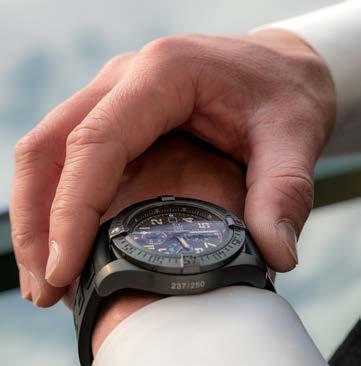
Start listening for your hunger instead of solely relying on an external cue (like the clock or a calorie counting app) to tell you when to eat. What are some early signs of hunger that your body experiences?
Maybe mild gurgling in the stomach, growling noises, irritability, or poor concentration? When you notice these signs, respond to them appropriately by eating something as soon as you are able. If you struggle to notice hunger until you’re starving, be sure you’re fueling your body consistently by eating something every three to five hours, regardless of whether you notice hunger or not.
Make a list of all the foods that you like, but try to limit or avoid due to thinking they’re unhealthy or bad for you (not including for medical or ethical reasons). One by one, begin making room for them in your regular line-up, either as meals or snacks, without judgment. Whenever we restrict ourselves, keep foods off-limits and out of the house, or look at certain foods as “good” or “bad,” we end up going overboard or have a hard time saying no whenever we do have access to those foods. On the other hand, if we keep the food available and allow ourselves to enjoy it when we want it, the temptation and drive to eat it all will eventually diminish.

Begin participating in movement/exercise you enjoy. It’s very common to use exercise to achieve weight loss or body size changes, and while there is nothing inherently wrong with this, it often leads us to engage in exercise that burns the most calories but isn’t the most enjoyable for us. When we do this, we’re less likely to stick with it compared to if we broaden our idea of what counts as exercise and engage in movement that we look forward to doing. Whether it’s hiking, biking, dancing, or playing outside with your kids, all movement counts! The University of Iowa Recreational Services provides a variety of opportunities to explore movement through group fitness classes, small group training, the outdoor rental center, and more!
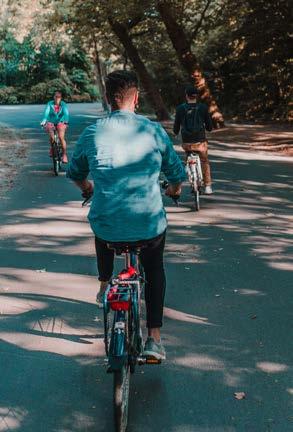
If you are looking for support for mindful eating or other well-being goals, connect with a live WELL Health Coach. Request an appointment at hr.uiowa.edu/livewell/health-coach-service
If you are a staff or faculty member working with students who could benefit from intuitive eating or any other wellness related topics, check out the Student Wellness website at studentwellness.uiowa.edu. We offer free appointments, group workshops, events and other programming for students on nutrition, fitness, stress management, alcohol and drugs, tobacco/e-cigarettes, sexual health and sleep.
Interested in making peace with food but want an introduction first?
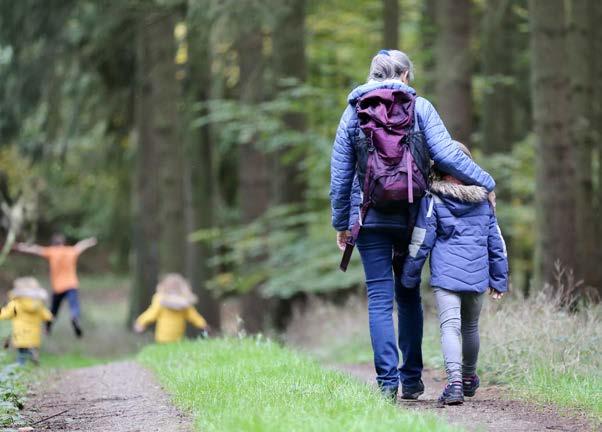
Scan the QR code to learn more about intuitive eating and the contents of the book.
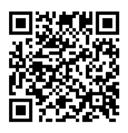
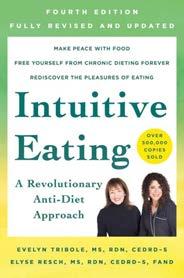
Scan the QR code to learn more and sign up for fall well-being programs.
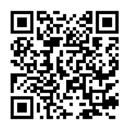
Eight-Week Mindfulness-Based Stress Reduction Program starts
Tuesday, September 19 | 5:30 p.m. - 8:00 p.m. at 2520D UCC
Embrace the art of mindfulness to enhance self-awareness, reduce stress, and improve cognitive abilities.
Twelve-Week Lifestyle Change Program through Wondr Health starts
Monday, September 25
Access online weekly lessons that promote weight loss and behavior change to build momentum towards your healthiest self.
Reboot Four-Week Rest and Recharge Program
Monday, October 2
Save the date! Coming this fall, a new challenge program will help you increase healthy habits for rest and sleep by using small, actionable steps.
You can also stay up to date on program details in the Monthly Wellness Updates from your local Wellness Ambassador.
UI Pentacrest Museums Tree Tours on the Pentacrest
Saturday, October 14 | 12:00 p.m. - 1:00 p.m. starting at Macbride Hall
Enjoy a guided tour on campus featuring the ecological diversity, symbolism, history, and lore of our trees.

Friday, October 20 | 12:00 p.m. - 1:00 p.m. starting at Field House
Join the Pentacrest Museums for a guided walking tour featuring a new route and new trees.
Wednesday, November 1 at UI Field House Main Deck
Save the date! Learn about campus resources that support your personal well-being and contribute to a healthy campus culture. All University of Iowa employees are invited to attend. Stay tuned for more details added to our website later this fall.
Continues through Friday, November 17
Explore our UI campus in-person or virtually to discover hidden treasures while learning the history of architecture and urban landscape.
Save the dates for several well-being programs and trainings happening this fall.
Scan the QR code to learn more and register for trainings.
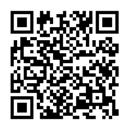
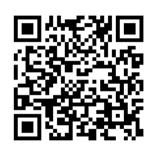
Tuesday, September 12 | 12:00 p.m. - 12:30 p.m. on Zoom
These workshops are led by UI Family Services partner, Horizons Financial Wellness Center.
• September 12: Saving for the Holidays
Wednesday, September 13 | 12:10 p.m . - 12:50 p.m. on Zoom
Learn the science of habits and walk away with tips, tools, and resources to help you design lifelong healthy habits.
Thursday, September 21 | 12:10 p.m . - 12:50 p.m. on Zoom
Come join this Taste of Mindfulness with Brad Baldwin from Aperture to hear more and experience a guided meditation. This training is also available at the same time on:
• Wednesday, October 25 and Wednesday, November 15
Wednesday, September 27 | 12:10 p.m. - 12:50 p.m. on Zoom
Discover strategies to help you get started with creating easy, nutritious meal plans that fit your busy lifestyle.
Starting Tuesday, October 10 | 12:00 p.m. - 12:30 p.m. on Zoom
These workshops are led by UI Family Services community partner LiveWell Seniors to help UI employees navigate the complex and confusing world of elder caregiving. Three sessions happening on Tuesdays in October:
• October 10: Who Pays for Elder Care?
• October 17: What is the Difference Between Medicare vs. Medicaid?
• October 24: Caregiving During the Holidays
Thursday, October 12 | 12:10 p.m. - 12:50 p.m. on Zoom
Join this session to learn simple tips for creating more positive moments in your life to enhance well-being.
• Health Coaching
• Confidential counseling through UI EAP
• Recharge+ Resilience Program
• Financial coaching and consultations
• Elder-care resources
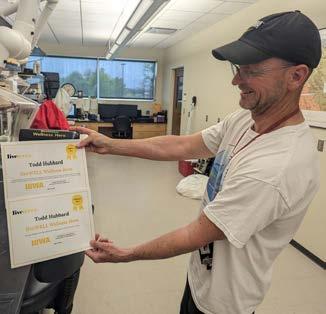
HR.UIOWA.EDU/LIVEWELL/WELLNESS-HEROES
Wellness Heroes is a program to recognize faculty and staff members who are practicing healthy behaviors that are inspiring others in the workplace. To acknowledge their efforts, a Wellness Hero will be awarded a certificate and a prize. liveWELL hopes to have our pages filled with Wellness Heroes in each newsletter! Any faculty or staff member can nominate any other faculty or staff member.
Todd Hubbard
Environmental Supervisor, Hygenic Laboratory
“Todd leads by example living a very healthy lifestyle. He encourages me to eat healthy and always has fruit and vegetables to share. Todd is the epitome of health.”
Nominated by: Kyle Skoff and Louise Biderman
Elizabeth May
Staff Nurse, Nursing Service
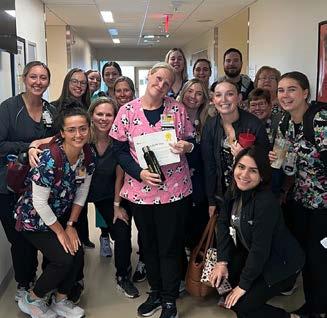
“Elizabeth created a theme titled “Bloom Where You are Planted.” She created a “Let’s root for each other and watch each other grow” board where we hang pictures and write a statement on a cutout cactus about something that brings us happiness or growth in our personal lives. She then organized a yoga session here in the hospital for the team to practice wellness and team bonding. Finally, she created a month-long NICU Step Challenge where 58 team members competed to meet specific goals each week.”
Nominated by: Laura Corbett
Darren Miller Communication Specialist, Office of Management and Business Development
“What makes Darren a wellness hero is that he encourages others in the department to walk with him and challenges them (in a good way) to hit a certain number of steps a day as well. His positive attitude has been very encouraging to others in our office setting.”
Nominated by: Jan Finlayson
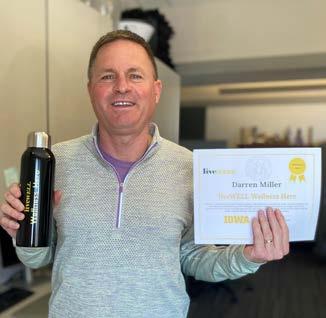
Michele Tutton
Coding Representative, UIHC Patient Financial Services
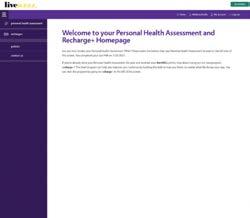
“Thank you so much. What a wonderful surprise. Just in time for a couple of back-to-back trips in April. The fist trip to Orange Beach, AL to visit our daughter and celebrate her 21st birthday and following up with another celebration for her in Nashville, TN. We will enjoy a little extra fun with this added bonus.”
Karen Kelly



Clerk, Department of Ophthalmology and Visual Sciences
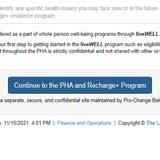
“OH my gosh! What a wonderful surprise! My husband and I just bought two ebikes last year, and we love to visit Madison, Wisconsin as they have WONDERFUL bike trails. So I will probably use that money to go on a trip to ride the trails in Madison with my husband!”
Barbara Vitense
Clerk, Environmental Health and Safety
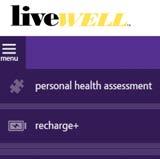
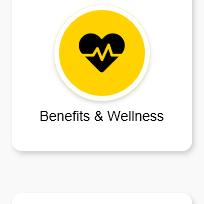
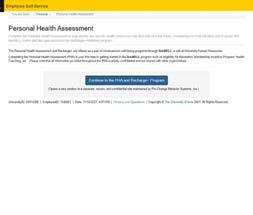
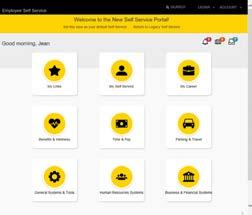
“I am so excited I won! I plan to use the money to buy a stand-up paddle board. I’ve wanted one for years. I love being on the water, and stand-up paddle boarding is a fun workout.”
September is National Suicide Prevention Month.
Have you completed the Kognito training? Kognito is a 45-minute online program for students, faculty, and staff that builds awareness, knowledge and skills for mental health and suicide prevention. It prepares users to lead real-life conversations with fellow students and colleagues who are in distress and how to connect them with the support they need
Learn how to enroll at mentalhealth.uiowa.edu/kognito
